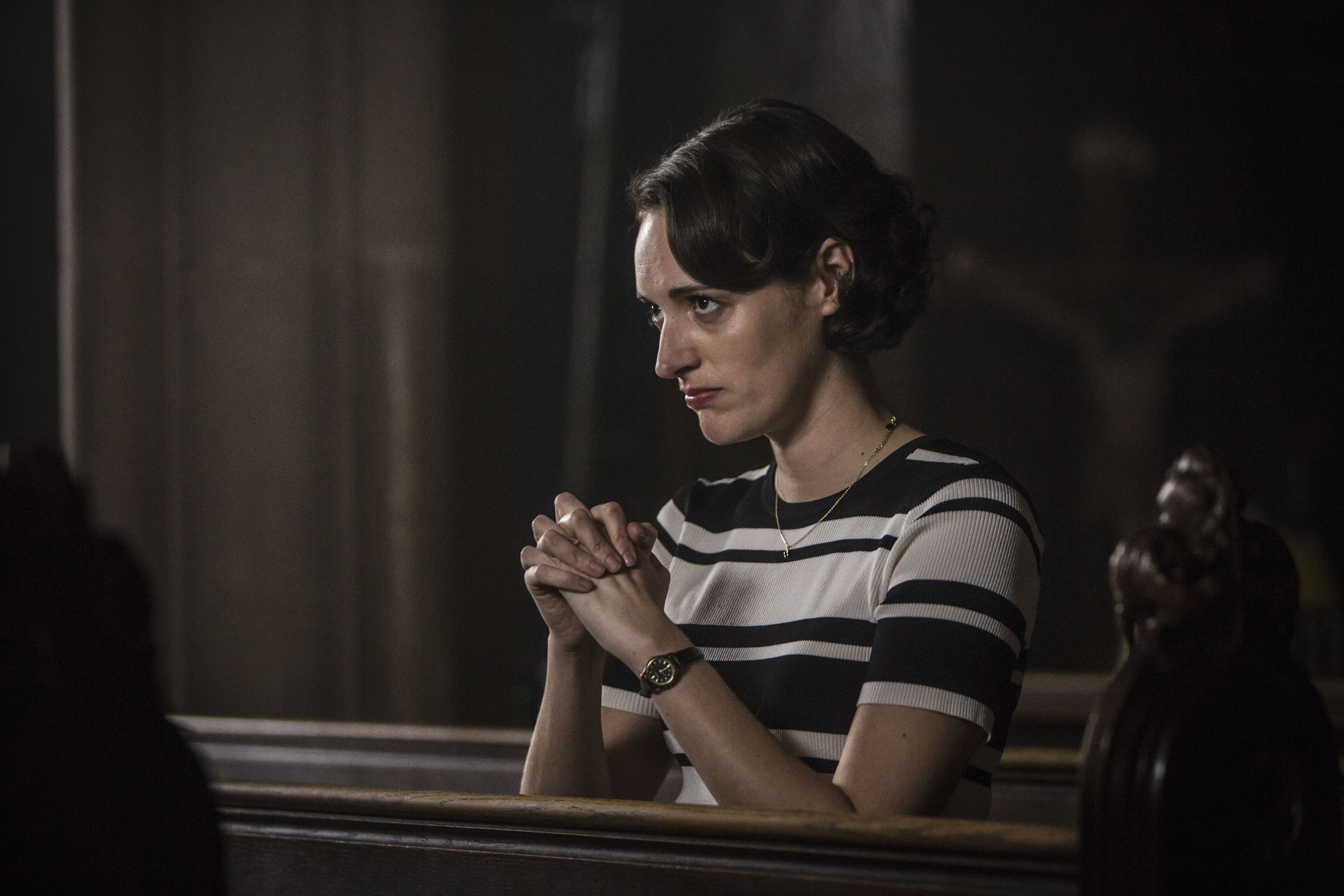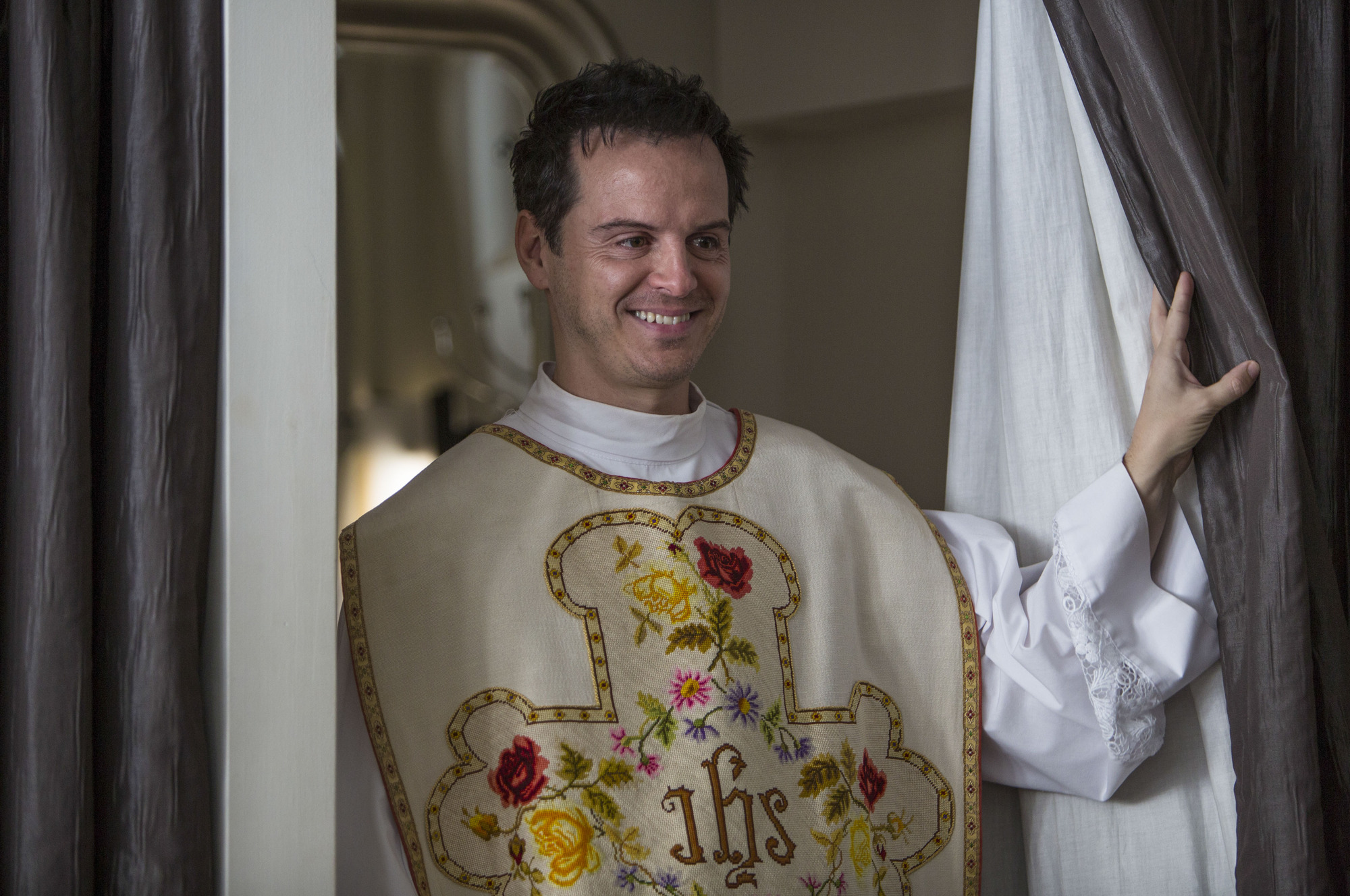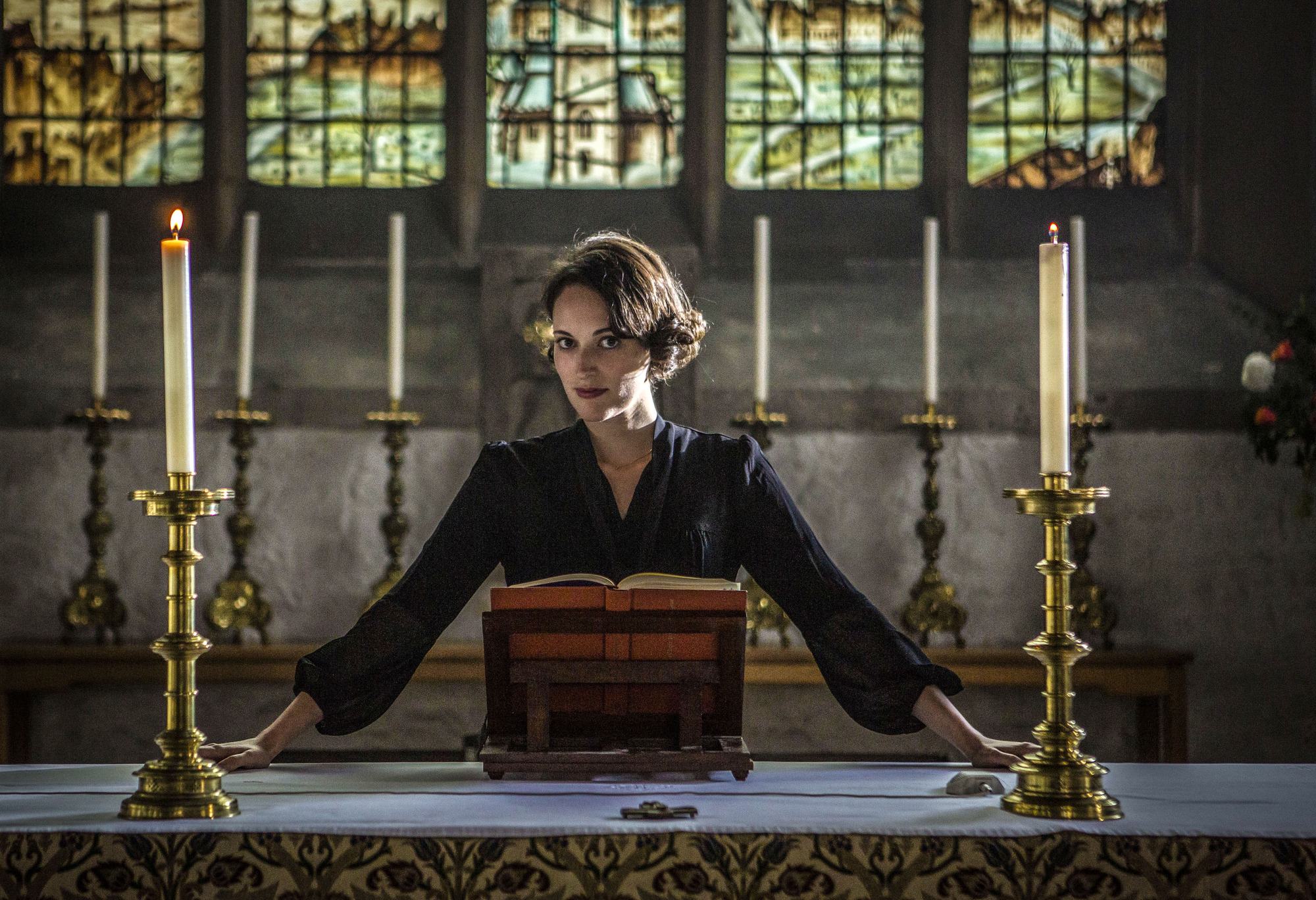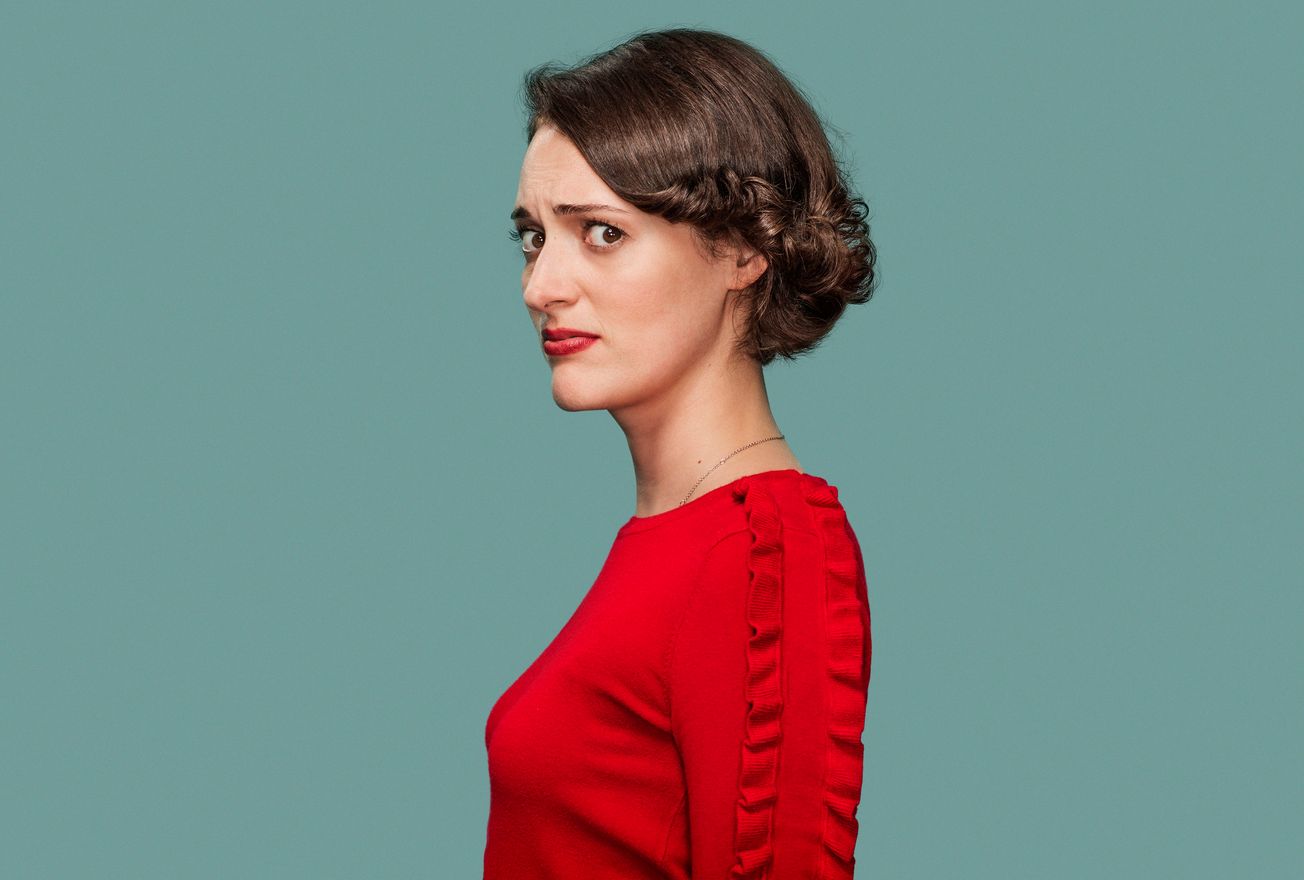By Miles Jackson, Third Year, English
The second season of one of the great modern TV comedies has been on everyone's lips and it proves a masterstroke in improving and wrapping up the series.
YouTube / BBC Three
Once in a while a critic will find themselves in a position where words feel moot. It feels particularly true of Phoebe Waller-Bridge’s Fleabag, where so often in its two season run the show says so much with as little as a split-second glance to camera. Over twelve near perfect episodes, the show presents a protagonist unlike any other on television and cleverly subverts every imagined trope of the romantic comedy.
Fleabag is a show that can flip on a dime between caustic situational comedy and some of the most heartrendingly honest, tragic and beautiful drama imaginable. It is for my money the best British show to have aired on television.
Based on a monologue performed at the Edinburgh Fringe Festival in 2013 by Waller-Bridge (and staying true to its theatrical origins with constant fourth-wall breaks and asides delivered to the audience), the show’s second season maintains and in many ways betters the staggeringly high quality of the first.

BBC / Two Brothers / Luke Varley
Opening on a deliciously tense, 20-minute long, conversational set piece over a family dinner, the show finds its eponymous protagonist newly reformed and seemingly celibate following the first season, during which she utilises sex and mischief as a means of coping with the death of her loved ones. Possessing all the simmering snark and biting theatricality of an Edward Albee play, the episode is another perfectly constructed, ticking time-bomb we had come to expect after a gleefully funny opening set of episodes.
Yet the episode also introduces a new character, Andrew Scott’s Priest (very few characters in the show have names), who quickly comes to define the second season’s endearing, confounding brilliance. The Priest - himself celibate and with insinuations of a dark past - almost immediately sparks one of the most electrifying will they/won’t theys in the history of television, spawning scenes rife with searing sexual tension and a natural chemistry between Waller-Bridge and Scott.
Fleabag has always been one of the best acted shows out there, yet its second season brings exquisite one-liners, aching monologues and cutthroat conversations to life with some of the world’s finest actors - Andrew Scott, Kristin Scott Thomas and Fiona Shaw - joining an already impeccable cast.

BBC / Two Brothers / Luke Varley
It is midway through the season that the show reaches improbable new heights, however, with a conversation between Fleabag and The Priest. It seems like any other in the show up until a point: a character verbally spars with Fleabag whilst Fleabag constantly looks at the camera, grinning and quipping as form of subtly undercutting both everything she and the other person is saying.
Suddenly The Priest notices her looking away; he breaks the fourth-wall break. In an instant, the show conjures up questions of identity - both Fleabag’s and the audience’s - so heady and complex on paper yet so elegantly and ethereally presented in the show itself that it creates one of those perfect televisual moments, a twist so brilliant as to be (quite literally) spine-tingling.

BBC / Two Brothers / Luke Varley
In any other show, such a thrilling relationship would be far and away the most compelling thing on-screen. It is testament to the joy of Fleabag that it is just one piece of the puzzle, with Fleabag’s familial relationships being as exciting as ever. In particular, Fleabag’s relationship with her sister Claire (Sian Clifford) becomes one of the most affecting portrayals of sisterhood I can think of. Fleabag opens the season with the line, ‘This is a love story’, seemingly a reference to The Priest. The true love story at the show’s heart, however, is that of Fleabag and Claire, two viciously estranged but desperately co-dependent people who realise just how much they need each other.
Where the first season sees Fleabag’s life fall apart while Claire watches, this season inverts the dynamic, leading to the show plumbing fascinating new depths between the two. In this week’s season (and series) finale, Claire tells Fleabag, ‘You’re the only person I would ever run to the airport for’, in reference to the age-old romantic cliche. Following the string of tragedies and traumas the two have endured, it ends the show’s most wonderfully warped friendship on a note as bittersweet as we could have hoped for.
This is true of the finale as a whole, which wraps a bow on events in a way that never feels forced, merely honest. There is a twisted sense of closure to Fleabag’s cracked, broken relationship with her evil Stepmother (a sublimely cruel Olivia Colman), calling back to the show’s first episode in an oddly beautiful way. There is a gleefully macabre send-off to Claire’s monstrous husband Martin and his creepy son. There is a speech from The Priest about love that is maddeningly sad yet feels like a statement of intent for the entire worldview of the show.
⚪️ single
— Alice 🌈 (@bossybigeyes) 8 April 2019
⚪️ in a relationship
⚪️ it’s complicated
🔘 jesus fucking christ I just watched the last episode of #Fleabag. my heart will never be the same again. what the fuck.
Most of all, there is Fleabag herself, who naturally and simply moves on. With one final wave, we, the camera, the audience - whoever we were - are gone. Fleabag leaves us with one final masterstroke; its brevity. Not a moment is wasted, nor a second spared.
Amidst a glut of ‘sad comedies’ that has coincidentally reached its nadir in the past few weeks with Ricky Gervais’ smug After Life, Fleabag stands out not for its cynicism but for its warmth. That the show ends not on a moment of bitter cruelty, as many other British comedies tend to, but on a bizarrely uplifting note is as miraculous as anything else the show has conjured up. Fleabag’s second coming is as good as television gets.
Featured Image Credit: BBC / Two Brothers / Steve Schofield
How much are you going to miss Fleabag?
Facebook // Epigram Film & TV // Twitter







